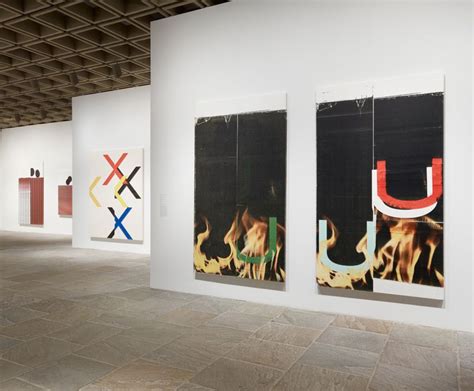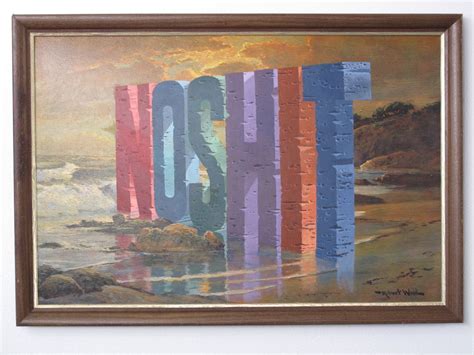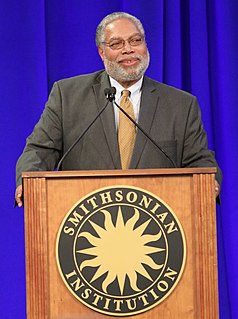A Quote by Wade Guyton
Related Quotes
The museum in D.C. is really a narrative museum - the nature of a people and how you represent that story. Whereas the Studio Museum is really a contemporary art museum that happens to be about the diaspora and a particular body of contemporary artists ignored by the mainstream. The Studio Museum has championed that and brought into the mainstream. So the museums are like brothers, but different.
What's that Regina Spektor song? Museums are like mausoleums. Having your work in a museum is something we as artists aspire to, but I don't think that's something we need to worry about while we're alive. Typically your work will end up in a museum after you're dead. And maybe that's the function of a museum. It's an archive of your work after you're dead. But while we're alive, I like to see it in places where it's connected to day-to-day life and making a difference.
I've put live performance in a lot of spaces. Part of what I want to do is take over the takeover. Another way that someone put it is, you climb over the fence and you cut a hole in it, and let everyone else in. That's kind of what this is. The museum is a repository of great works, but there is certain work that no one ever calls great. This is an insistence on directing their attention to other stuff that's great, that never gets to be in a museum.
'Summer of Love: Art of the Psychedelic Era,' the Whitney Museum's 40th-anniversary trip down counterculture memory lane, provides moments of buzzy fun, but it'll leave you only comfortably numb. For starters, it may be the whitest, straightest, most conservative show seen in a New York museum since psychedelia was new.





































